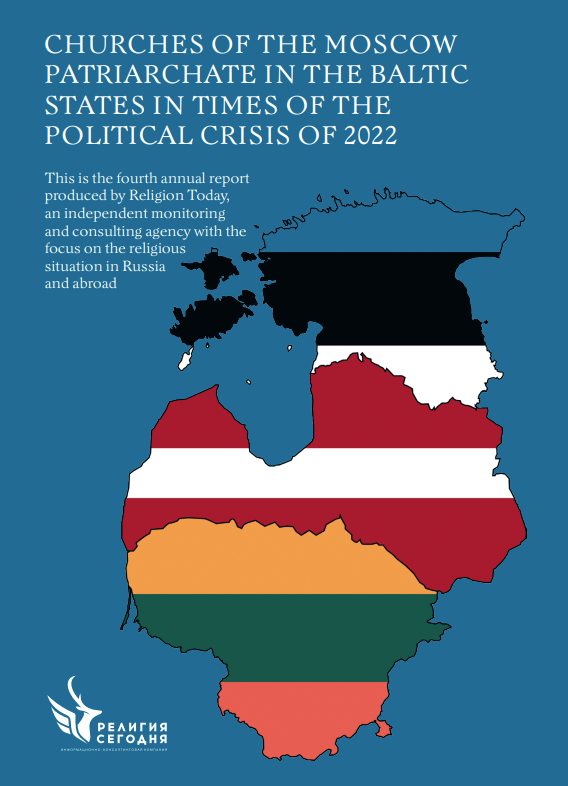ANNUAL #4: CHURCHES OF THE MOSCOW PATRIARCHATE IN THE BALTIC STATES IN TIMES OF THE POLITICAL CRISIS OF 2022
- 08.Feb ‘23
- 5
- 351
- 0
The text presented to you by the independent information and consulting company “Religion Today” is the fourth annual analytical report prepared by our experts. Annual No. 1 and No. 2 (“The Crisis of Modern Orthodoxy”, “Orthodox Church of Ukraine in the World and Regional Context”) were a digest of events related to the background of the legalization of the church schism in Ukraine as a factor in big politics. Annual No. 3 “The Islamic Community in Russia in 2021: Structural Changes and Internal Conflicts” was devoted to the analysis of the Islamic Ummah of Russia. In 2022, I would like to turn the focus of attention to the Baltic region and the difficult socio-political situation in which the communities of the Moscow Patriarchate find themselves there. Since the past year was extremely rich in information messages, behind such a large flow it was not always possible to build a complete picture and identify trends in the development of the religious situation in a particular region. In order to show how the position of Orthodox churches of the Russian tradition in the Baltic countries has changed, we have prepared this information and analytical report.

Annual No. 4 “Churches of the Moscow Patriarchate of the Baltic States in the context of the political crisis of 2022” consists of three parts. The Foreword from the Religion Today provides a general overview of the significant religious and political trends of the outgoing year, associated with ongoing open and veiled actions to split world Orthodoxy and marginalize the Russian Orthodox Church in a global context. This is followed by the Chronology, which presents the key events of 2022 related to the Orthodox communities of the Moscow Patriarchate in Lithuania, Latvia and Estonia, as well as comments from official speakers. The Chronology does not provide any expert assessments or subjective interpretations, based on the fact that each reader will be able to independently draw conclusions about the position of the Orthodox churches in this region and how the religious policy of the Baltic countries is formed in relation to the Moscow Patriarchate. The yearbook concludes with an abstract of an article by religious scholar Anastasia Koskello “To Leave or not to Leave: The Dilemma Facing the Orthodox Communities in the Baltic states ” (its full text is posted here). In his text, the author quite motivatedly reflects on the crisis situation with Orthodoxy in the Baltic countries and its possible resolution. The approaches outlined by A. Koskello can be a useful addition to the materials of this issue of the RS Yearbook for readers.
The full text of the yearbook can be downloaded in pdf format from the link below:
Download PDF


Comments (0)